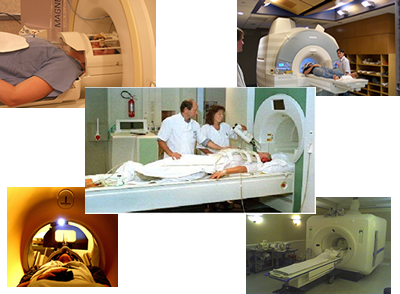Magnetic Resonance Imaging - Having an MRI Scan
On the day of your magnetic resonance imaging (MRI) scan, you should be able to eat and drink and take any medication as usual. One exception is if you are having an MRI scan of your bile ducts, known as magnetic resonance cholangiopancreatography or MRCP. In this case, you will usually be asked not to eat or drink anything for two to three hours before the scan.Due to the strong magnetic fields that are used by the MRI scanner, it is important to remove any metal objects from your body, including:
Depending on which part of your body is being scanned, you may need to wear a hospital gown during the procedure. Otherwise, wear clothing without metal zips, fasteners, buttons, belts or buckles.For some MRI scans, you will be given an injection of a special dye, known as a contrast agent. This makes certain tissues and blood vessels show up more clearly and with greater detail on the scan.As MRI scans are painless, anaesthetic is not usually required. If you are claustrophobic, you can request a mild sedative during the scan to help you relax. If this is the case, inform the radiographer. If you decide to be sedated, you will need to arrange for a friend or a family member to drive you home after the scan because you will be unable to drive for the first 24 hours (see After the scan, below).A general anaesthetic is often used when babies and young children are given an MRI scan. This is because it is important to stay very still during the scan, which babies and young children are often unable to do if they are awake.During the scanAn MRI scanner is a short tunnel which is open at both ends. During the procedure, you lie on a motorised bed, which is moved inside the scanner.A small receiving device is placed behind or around the part of your body being scanned. You are moved into the scanning tube, either head- or feet-first, depending on which part of your body is being scanned. A computer is used to operate the MRI scanner. The computer is located in a different room to the scanner to keep it away from the magnetic field generated by the scanner.As the radiographer operates the computer, they will also be in a separate room to you. However, you will be able to talk to them, usually through an intercom, and they will be able to see you at all times on a television monitor. During your scan, a friend or family member may be allowed to stay in the room with you. Children can usually have a parent with them. Anyone who stays in the scanner room with you will be asked the same questions as you about pacemakers and metal objects in their body, and will have to follow the same guidelines about clothing and removing metallic objects. To avoid the images being blurred, it is very important that you keep the part of your body being scanned still throughout the procedure. Depending on the size of the area being scanned and how many pictures are taken, a typical scan lasts between 15 and 90 minutes. At certain times during the procedure, the MRI scanner will make a loud knocking noise. You may be given earplugs or headphones to wear. The noise is caused by the magnets in the machine being turned on and off. After your scan has been completed, you will be moved back out of the scanner.After the scan MRI scans are usually performed as an outpatient procedure, so there is no need for an overnight stay in hospital. Once the scan is over, most people can resume their normal activities immediately.However, if you have been given a sedative, you will need to be taken home by a friend or relative, and someone should stay with you for the first 24 hours. It is not safe to drive, operate machinery or drink alcohol for 24 hours after you have had a sedative.If you have been given an injection of a contrast agent, it is a good idea to drink a lot of water for the following 24 hours to help flush the dye out of your body.As your MRI scan will need to be studied by the radiologist and possibly a number of other related specialists, it is unlikely that the results of your scan will be known immediately. The radiologist will report their findings to the doctor who arranged the scan, who will discuss the results with you. Unless they are needed urgently, it usually takes a couple of weeks for the results of an MRI scan to come through. |
Follow me...
|


 Preparing for the scan
Preparing for the scan


